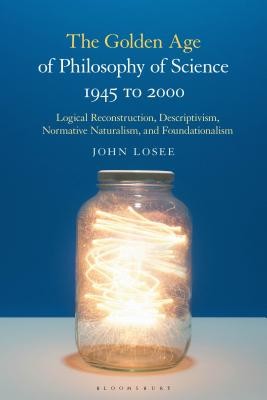
- We will send in 10–14 business days.
- Author: John Losee
- Publisher: CONTINNUUM 3PL
- ISBN-10: 135007151X
- ISBN-13: 9781350071513
- Format: 16.3 x 23.6 x 2.3 cm, hardcover
- Language: English
- SAVE -10% with code: EXTRA
Reviews
Description
This book offers the reader a guide to the major philosophical approaches to science since World War Two. Considering the bases, arguments and conclusions of the four main movements - Logical Reconstructionism, Descriptivism, Normative Naturalism and Foundationalism - John Losee explores how philosophy has both shaped and expanded our understanding of science.
The volume features major figures of twentieth century science, and engages with the work of previous philosophers of science, including Norman Campbell, Rudolf Carnap, Ernest Nagel, Karl Popper, Richard Dawkins, and John Worrall. In particular, The Golden Age of Philosophy of Science, 1945 to 2000 aims to answer the following questions: How should competing philosophies of science be evaluated? Should philosophy of science be a prescriptive discipline? Can philosophy of science achieve normative status without designating trans-historical evaluative principles? And finally, how can understanding the history of science aid us in analyzing the philosophy of science? In answering these questions, this book shows us why we understand science the way we do.
The Golden Age of Philosophy of Science 1945 to 2000 is essential reading for students and researchers working in the history and philosophy of science.
EXTRA 10 % discount with code: EXTRA
The promotion ends in 18d.18:38:29
The discount code is valid when purchasing from 10 €. Discounts do not stack.
- Author: John Losee
- Publisher: CONTINNUUM 3PL
- ISBN-10: 135007151X
- ISBN-13: 9781350071513
- Format: 16.3 x 23.6 x 2.3 cm, hardcover
- Language: English English
This book offers the reader a guide to the major philosophical approaches to science since World War Two. Considering the bases, arguments and conclusions of the four main movements - Logical Reconstructionism, Descriptivism, Normative Naturalism and Foundationalism - John Losee explores how philosophy has both shaped and expanded our understanding of science.
The volume features major figures of twentieth century science, and engages with the work of previous philosophers of science, including Norman Campbell, Rudolf Carnap, Ernest Nagel, Karl Popper, Richard Dawkins, and John Worrall. In particular, The Golden Age of Philosophy of Science, 1945 to 2000 aims to answer the following questions: How should competing philosophies of science be evaluated? Should philosophy of science be a prescriptive discipline? Can philosophy of science achieve normative status without designating trans-historical evaluative principles? And finally, how can understanding the history of science aid us in analyzing the philosophy of science? In answering these questions, this book shows us why we understand science the way we do.
The Golden Age of Philosophy of Science 1945 to 2000 is essential reading for students and researchers working in the history and philosophy of science.


Reviews